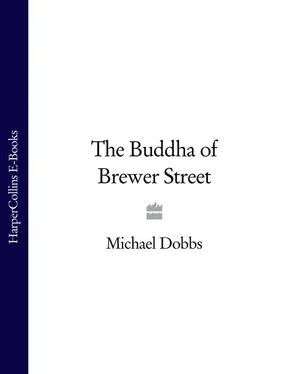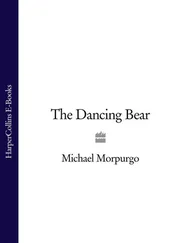He fell for what seemed like forever, and as he plunged, the buttercup and claret of the monk’s robes opened and fluttered like the wings of a gentle butterfly. Until, in the darkness that clung to the very bottom of the ravine, the wings broke and lay still.
The soldiers shouted in anger, sensing they had been cheated. Older monks chanted in sorrow, while the younger ones hustled forward with a renewed sense of urgency.
Kunga watched all this from his vantage point. He was too insignificant to be a prime target for the soldiers, too frozen with fear to move. And high on that wall, surrounded by death and the destruction of so much that he loved, Kunga passed into manhood. He began to hate. He knew it was a passion he should not feel, but there it was, undeniable, embracing, and empowering.
Hate!
He’d have to deal with its karmic consequences later, but later could take care of itself. For now it warmed his blood, unfroze him, drove him on, running. Amidst the ruination that was spreading around him, he knew there was one thing he must save, one treasure that must be kept from the hateful Chinese even at the risk of his life.
His route to the great prayer hall was blocked by many soldiers, but he was small and too deft for them, ducking beneath their outstretched arms and rifles. Up close they looked so much less fearsome, their uniforms ragged and patched, their faces all but obliterated by crustings of dirt that gave them the appearance of lizards. Many seemed only a few years older than Kunga. Some seemed almost as scared. At the head of the broad stone steps that led to the prayer hall a group of monks had gathered to try to block the way of the troops, but they had nothing with which to resist other than their own bodies. Resistance became sacrifice as the Army of Liberation fell greedily upon its prey. Mao was right. The power of the human spirit was no match for the butt end of a gun. In every corner claret robes flapped and fell. More broken butterfly wings.
Kunga was quick, but not quick enough. As he rushed through the midst of the clubbing and systematic dislocation of bones, a single blow struck him on the shoulder. It sent him sprawling through the entrance to the prayer hall, where he lay stunned on the floor, defenceless. But the soldiers were like foxes in the chicken pen, distracted by too much choice. The boy could wait, until later.
The great hall at first seemed dark. Most of the butter lamps had not been lit that morning. But from all around came the sounds of the Chinese troops at their work, tearing at the magnificent hangings of satin and silk, smashing every piece of glass. Delicate wood carvings were reduced to splinters, tall stucco statues as old as the monastery itself were toppled and turned to dust beneath their boots. Along one wall ran shelves on which were set out sacred images of the Buddha, fashioned by monks from wood and bronze and plaster and even pressed butter. These were works of devotion and skill. Of many different sizes. Numbering in all more than a thousand. The work of countless lifetimes. A laughing soldier ran along the shelves with the barrel of his rifle and swept away every trace.
Spreadeagled on the cold stone floor, Kunga slowly revived, his wits restored by the heavy aroma of incense which stung his nostrils and irritated his deadened senses. He could smell something else, too, something new. His own fear. He crawled forward. He could see more clearly now, for they had started a fire at the foot of one of the great carved wooden columns that soared towards the timber roof, and onto the flames they were piling anything that might burn. The flickering light fell upon the statue of Padmasambhava, the ancient who had first brought Buddhist teachings to Tibet from the sweltering plains of India, a figure almost fifteen feet tall that filled the far end of the prayer hall. Padmasambhava appeared awesome, red eyed, his gilded skin afire, the dancing shadows lending him an expression of the most intense wrath. He held a trident in his hand, decorated with a skull and other fearsome symbols that Kunga didn’t yet fully understand, and for a moment Kunga prayed that the great Buddha himself might materialize to overwhelm the enemy and add a few more skulls to his tally.
But it was only a statue. Two soldiers began attacking it with bayonets, hacking away at the riches of precious stones and inlays that decorated its base. They were too busy with their ransacking to notice Kunga as he stole past in the shadows.
At last he was there, before a glazed shrine cabinet on the wall behind the statue. A single butter lamp flickered at the foot of a small clay Buddha, a cracked and age-brushed figure that had been made by Lama Chogyal Lumpo himself, the teacher who had founded this monastery more than a thousand years before. Kunga had always felt a special tie to Lama Chogyal. Perhaps in a previous life Kunga had been a close friend or assistant, maybe even the Lama himself. And perhaps one day Kunga would be recognized as the Lama’s reincarnation. He didn’t fully comprehend these things, but of one thing he had no doubt – he, Kunga Tashi, had a special role to play in protecting the memory of the Lama, and in particular in protecting this clay figure, the only relic of the master to survive all the accidents and indignities of time and to have passed unscathed through the ages.
It was as he stretched to his full height to open the glass-fronted cabinet that the rifle butt smashed through it. He had been caught unawares. One of the soldiers was upon him. Shards of flying glass cut across Kunga’s face and hands. Blood flowed into one eye. But hope! The figure was still intact. It wasn’t too late.
Desperately Kunga snatched it from its place, even as the soldier pushed him aside. He fell heavily, cracking an elbow, but still he clutched the statue. As he looked up, the soldier was standing above him, rifle raised. Kunga knew he was going to die. But ifhis death could help preserve the memory of the Lama, it would be a sacrifice willingly given …
The rifle butt smashed down. Not on his head, but on the clay statue. He could feel it break, yet still he refused to release it. His crippled fingers struggled to cover the fragments on the stone floor. Again and again the rifle came down, shattering both bone and clay until there was nothing of any form left. Only pain. Savage pain. Excruciating pain. Unlike anything Kunga had ever known. Once more he felt his consciousness leave his body, drifting away as he watched the soldier bring down the rifle butt time after time. Still Kunga would not let go of the statue. He would not, until both his consciousness and the pain had drifted away into darkness.
Westminster, some forty years later
Perhaps it had something to do with the ley lines, Goodfellowe wondered. Two main sets of them were supposed to converge at Westminster, directly beneath the altar of the Abbey, in fact, where once had stood a Druid temple. The Michael Ley and the Mary Ley, male and female, all options covered and chaos guaranteed. Avenues of prehistoric energy that gave this place its unusual intensity – and that edge of insanity.
He was standing barely a hundred yards from the supposed confluence of the ley lines, in the Cholmondeley Room (pronounced Chumley, sometimes through the nose), which stood at the back of the House of Lords. He’d never had much liking for diplomatic receptions even though they were an inescapable part of the duties required of Her Britannic Majesty’s Minister for Foreign and Commonwealth Affairs. Sod the lot of ’em. Sod ’em all! Being nice to foreigners didn’t figure prominently on his Christmas shopping list but perhaps that’s why the Prime Minister regarded him so highly. At least until tomorrow afternoon. (He’d have arranged the announcement for the morning, except the Evening Standard had recently done him a disservice and he didn’t fancy giving them an exclusive. A tiny spite, not much of a revenge, but the best he could run to at a time like this.) The letter was already signed and sealed, waiting only to be taken by messenger the few yards that separated the Foreign and Commonwealth Office from the source of power at 10 Downing Street. It would take the messenger less than three minutes in the morning. And that would be that. Close of innings. The end. Like some desperate Indian academic qualification. Thomas Goodfellowe. MP, BA University of Marshwood (Failed).
Читать дальше












